
Week’s balance: Poroshenko and Groysman's foreign tours, piled up complaints to business ombudsman, and Akhmetov blackmailing the government
Ukrainian President Petro Poroshenko acted as Ukraine’s promoter in Saudi Arabia and the United Arab Emirates, Prime Minister Volodymyr Groysman worked to attract Canadian businesses, the business ombudsman received a record number of complaints, and DTEK's Rinat Akhmetov threatens the safe passing of the heating season - these are the main economic news of the outgoing week.
Ukraine in the past week was extremely active in the international arena. The country’s two top officials at once - the president and the prime minister – have gone on foreign trips. Petro Poroshenko went to Saudi Arabia and the United Arab Emirates, while the head of government Volodymyr Groysman paid a visit to Canada, the country that has been Ukraine’s vocal supporter in its fight against Russia's aggression.
Besides political issues, both Poroshenko and Groysman during their tours also focused on the economy. During Poroshenko’s Saudi trip, a Memorandum on investment cooperation in the field of agriculture was signed off. According to the first deputy agrarian minister, Maksym Martyniuk, who was a signee on Ukraine’s part, the document aims at attracting investment into the country’s processing industry, to ensure the "shift from the model of direct supplies of raw materials." Incidentally, it is worth recalling that it’s precisely the agrarian products that make up 80% of all Ukrainian exports to Saudi Arabia.
Wrapping up his visit, Poroshenko suggested that Saudi businesses that already have positive experience of working in Ukraine could increase their investment by half, including in the port infrastructure, and also take part in the privatization process.
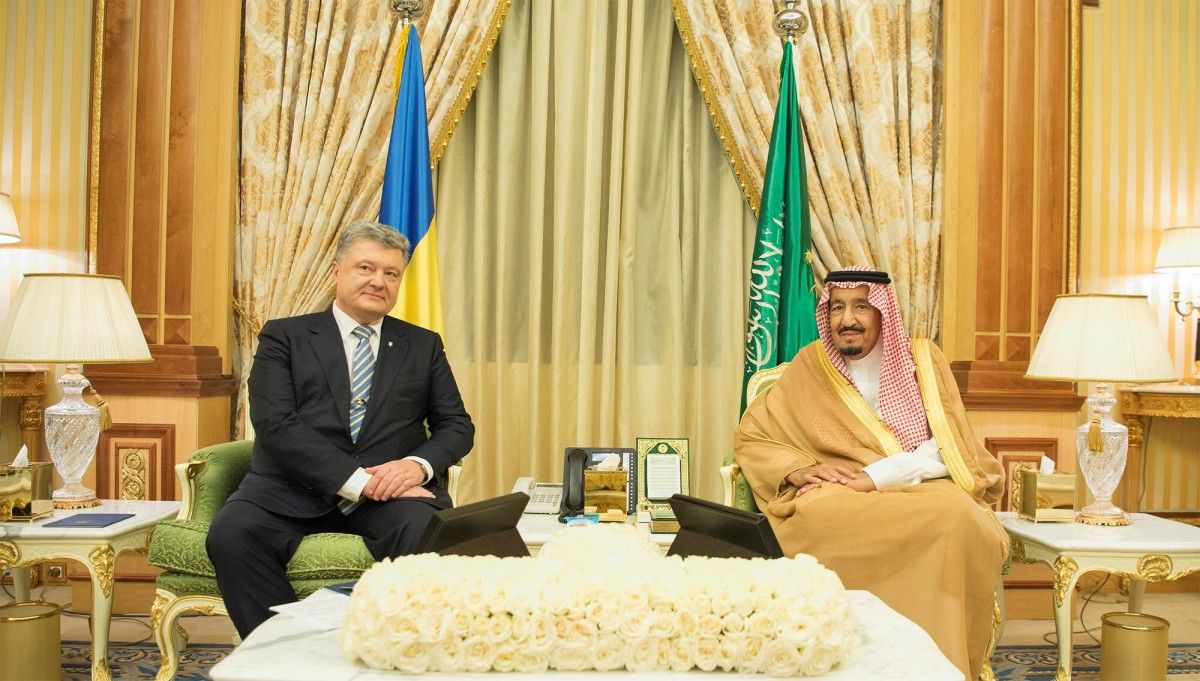
The issues related to the Ukrainian ports were also raised during the president's visit to the United Arab Emirates. In Abu Dhabi, Poroshenko met with the top management of DP World, one of the world's largest port operators. The company has confirmed its intention to invest in Ukrainian ports.
Groysman's visit to Canada was no less effective. In Ottawa, during the meetings with his Canadian counterparts, the head of the Ukrainian government said that the two countries should start working on new bilateral agreements, namely, on the protection of investment and a free trade area in services. The FTA agreement for goods went into force in August of this year. The Ukrainian side undertook to cancel in the next seven years 99% of all tariffs for Canadian products which have been hampering the development of free trade.
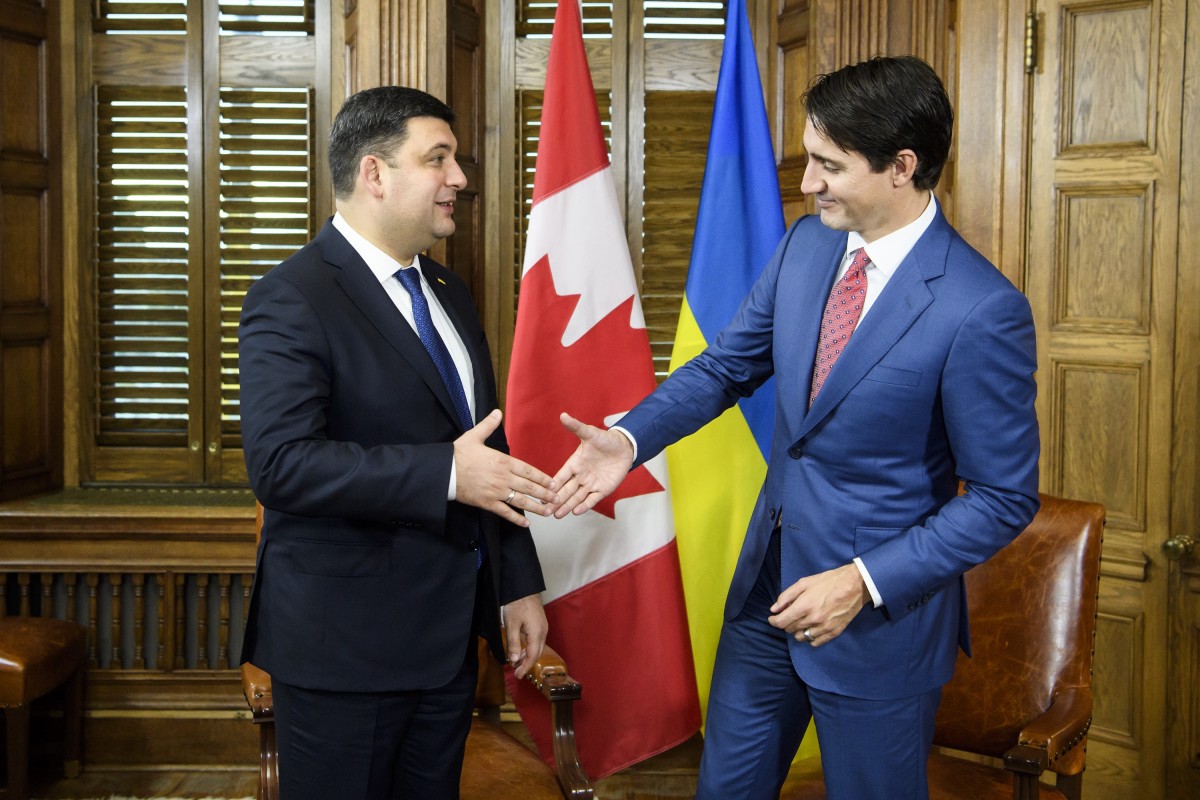
Groysman has also urged Canada to strengthen cooperation in the food industry, aerospace and aviation sectors. The State Space Agency of Ukraine has agreed with Canadians on participation in projects to create a space launch site in the Canadian province of Nova Scotia (with the involvement of Yuzhnoye Design Bureau), as well as on cooperation of Canadian and Ukrainian enterprises on launching nano-satellites.
Complaints from entrepreneurs
The top issue of the outgoing week is Ukraine’s modest results in the World Bank’s Doing Business rating where the country rose by four positions, taking a 76th spot. According to the World Bank, a slight ascent was due the simplification of a process of obtaining construction permits, improving the protection of minority shareholders by imposing an obligation to immediately publish information on transactions with related parties, and also by reducing the rate of a single social contribution. Meanwhile, only minimal progress was noted in simplifying the procedures for opening a new business, connecting to electricity grids, registering property, and bankruptcy.
Despite joyful evaluation by Ukraine’s officials, many experts called the growth rate too slow.
"The 76th position means that it is still not easy to do business in Ukraine, it’s inconvenient, and Ukraine remains unattractive for external and internal investors. Ukraine is actually moving very slowly in this rating. When we are in a position below the 30th spot, we don’t compete at all with the countries that can claim foreign investments," said Kateryna Hlazkova, who is the director of the Union of Ukrainian Entrepreneurs.
In addition, Ukraine’s business ombudsman Algirdas Semeta reported some shocking statistics. According to the official, in the third quarter of this year the Business Ombudsman's Council received a record number of complaints from entrepreneurs.
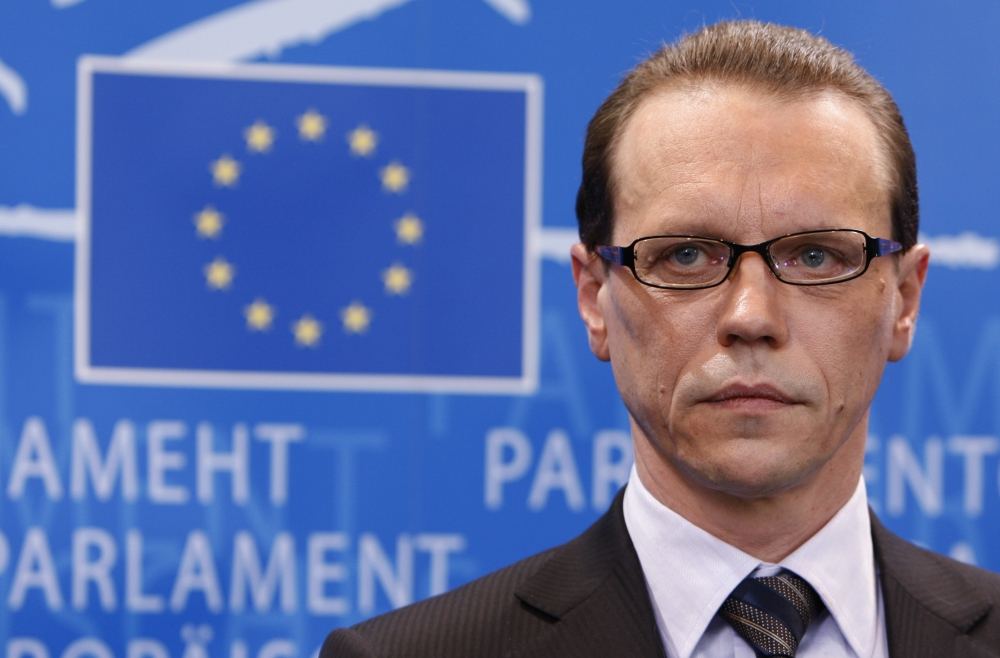
"We received the largest number of complaints in the history of our operations. There have been 408 of them, which is 72% more than in the second quarter of this year. We’ve also launched the largest number of investigations, 283, which is 77% more than in the second quarter of 2017, and completed the largest number of probes, 214, which is 11% more than in the previous quarter," Semeta said, adding , that the main problems facing businesses are tax and customs issues, the actions of law enforcers, controlling bodies, and local authorities.
Threats to hryvnia
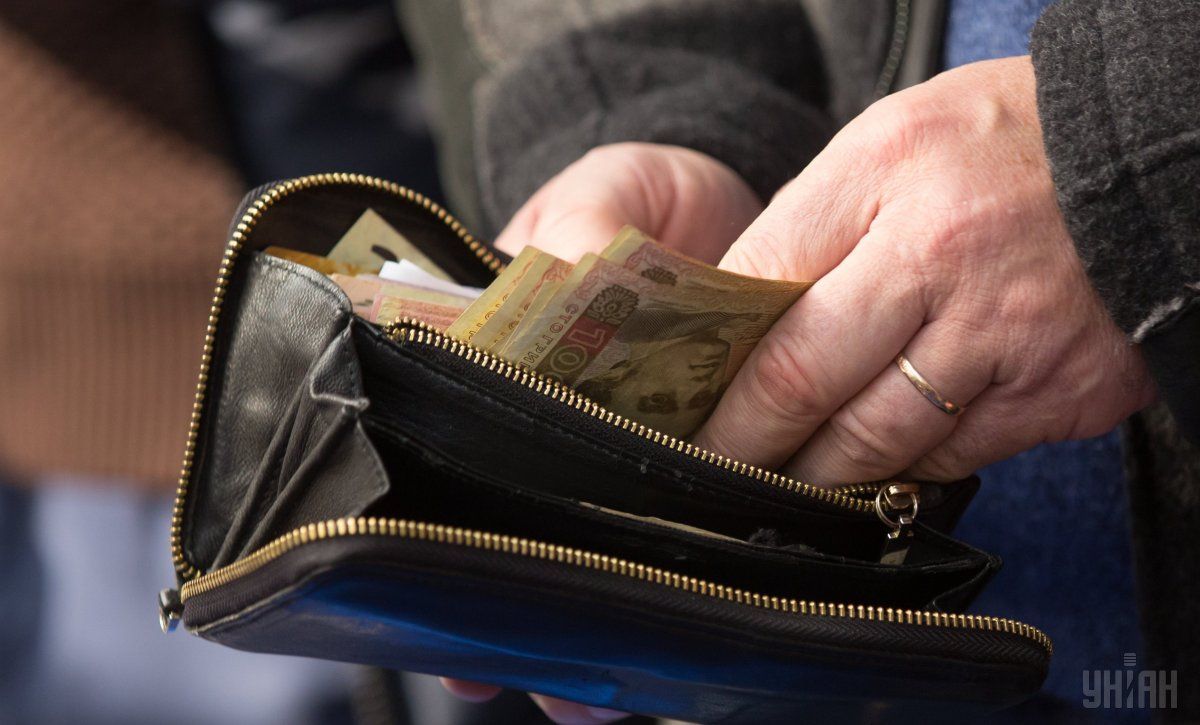
The national currency continues to upset Ukrainians - the hryvnia keeps weakening. The National Bank, whose top officials starting September have been receiving a significantly increased salary, are seemingly taking no steps to strengthen the hryvnia. What’s worse, the Council of the National Bank, having analyzed the economic situation, saw great risks to the hryvnia’s future stability. The NBU says main threats are the unprecedentedly high level of liquidity in the banking system, that is, the amount of cash in bank accounts, and the fact that the treasury account is seeing a historically high balance.
"Local budget funds continue to be placed on banks' deposits instead of expanding investment in the real economy ... Given the current state of the monetary market, government spending in a short period of time, traditional at year-ends, could bear more significant risks to the stability of Ukraine's monetary unit [hryvnia] than in previous years," the NBU Council reported.
Bankers also note the need to monitor the state of the monetary and foreign exchange markets, the liquidity of the banking system and its major impact factors, as well as the need to strengthen the coordination of monetary and budgetary policies in order to prevent a sharp increase in the supply of funds and growing inflationary risks.
Another factor that is hindering the hryvnia stability will be forthcoming payments on the country’s external debt. After all, starting next year, Ukraine will have to repay some considerable sums, which will not be an easy task. In this situation, Ukraine won’t be able to do without the support of the International Monetary Fund and other financial donors. However, at this week’s conference in Kyiv, the IMF representative in Ukraine, Gösta Ljungman, said that Kyiv would receive the next tranche if a law on privatization was adopted, an Anti-corruption Court created, and the price for gas for the population increased. That’s not to mention some real results in the fight against corruption.
Set-up with coal
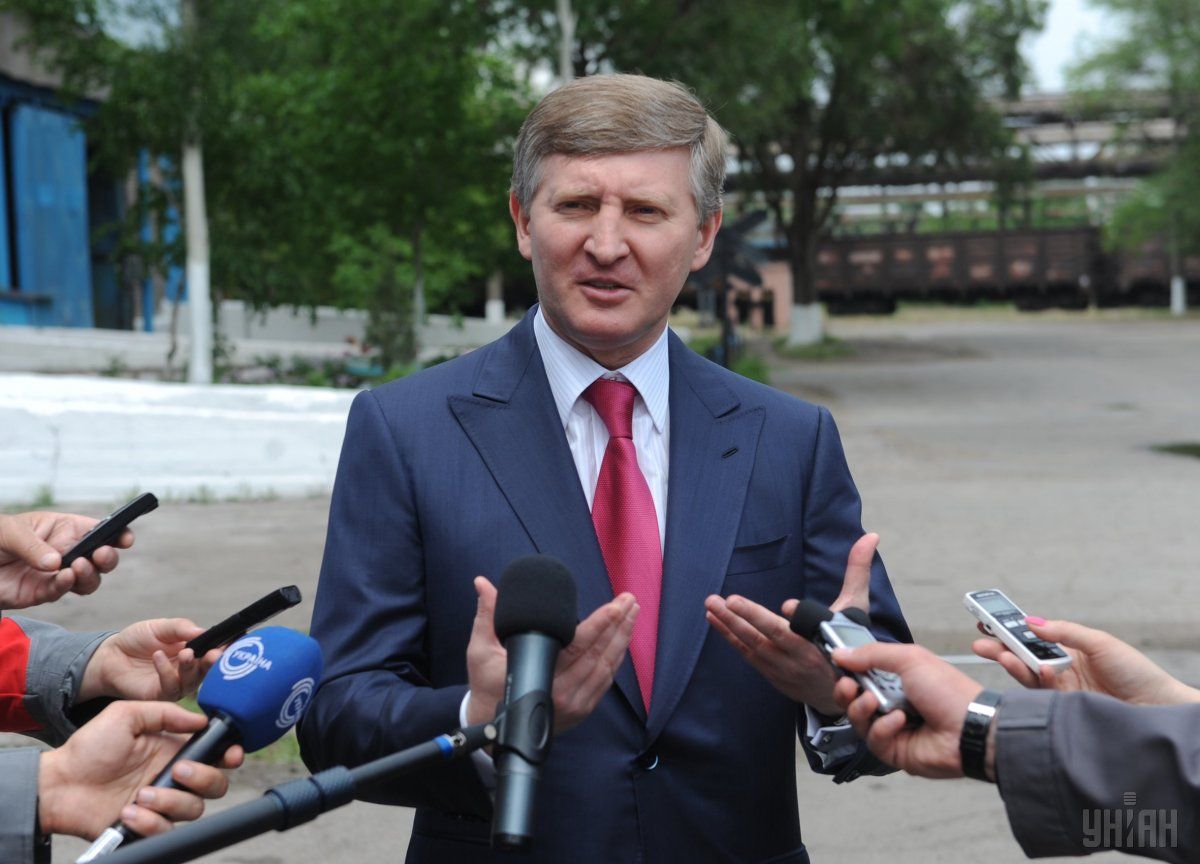
With the arrival of cold weather, the issue of the country’s passing of the heating season is once again becoming relevant. Despite the fact that earlier officials were unanimous in their reports on a 100% readiness for the upcoming winter, an interesting detail has traditionally emerged: low coal reserves at the warehouses of thermal power plants.
One of the first ones to comment on the situation was the representatives of Ukrenergo, the state-owned operator of the united energy grid. Company's chief dispatcher Vitaly Zaichenko said that coal reserves in the TPP's warehouses are at 1.9 million tonnes with a target of 2.8 million tonnes.
"Lagging from the schedule for the stocking of coal is at about 60%," he said.
According to Oleksandr Rogozin, who is an expert in the energy sector and a representative of the All-Ukrainian Energy Assembly, low coal reserves at TPP storage facilities can carry the following threat: if there is a critical situation with a shortage of coal this winter, the TPPs will have to launch their gas-oil units and burn natural gas, which is more expensive than coal. Ukrenergo assessed as pessimistic the option of TPPs using gas. It was estimated that some 2 billion cubic meters of natural gas could be required in this case.
Another energy expert, who is the head of the Association of Consumers of Energy and Utility Services, Andriy Herus, saw in such low coal reserves the attempt by Rinat Akhmetov’s DTEK Energy Holding to blackmail the government into raising the tariffs for thermal-generated electricity. At the same time, Herus recalled that this tariff since April 2016 has been growing as a result of the scandalous "Rotterdam Plus" formula.
"Such a tariff increase does not correlate with the formation of coal reserves for the stable passage of the autumn-winter period. On the contrary, despite a significant increase in the tariff for TPPs (more inflation), warehouse stocks decrease each year, and in this year, they are at their record low. Therefore, this is a typical tactic of pressure on the part of the company, which occupies a dominant position in the market – in this way it demands an increase in the tariff and additional payments," the expert said, adding that the decline in coal stocks is also recorded for the G-grade coal, mined by DTEK itself in the government-controlled territory of Ukraine.
At the same time, DTEK officials insist that the company has scheduled its work in the autumn-winter period of 2017-2018 in a way as to avoid the use of expensive natural gas. They explain low coal reserves by the fact that today the company is forced to import both anthracite and partially gas-grade coal. Import contracts require prepayment in foreign currency, therefore accumulation of reserves of coal which will just lay there is quite a costly endeavor.
"We have lost the resources of a more accessible Donbas coal, while the mines remaining in the [government-]controlled territory will provide just over 70% of the required volume, and the procurement in foreign markets implies logistical and financial issues," said Iryna Miliutina, who is a communications director at DTEK Energo.
Dmytro Sydorov

